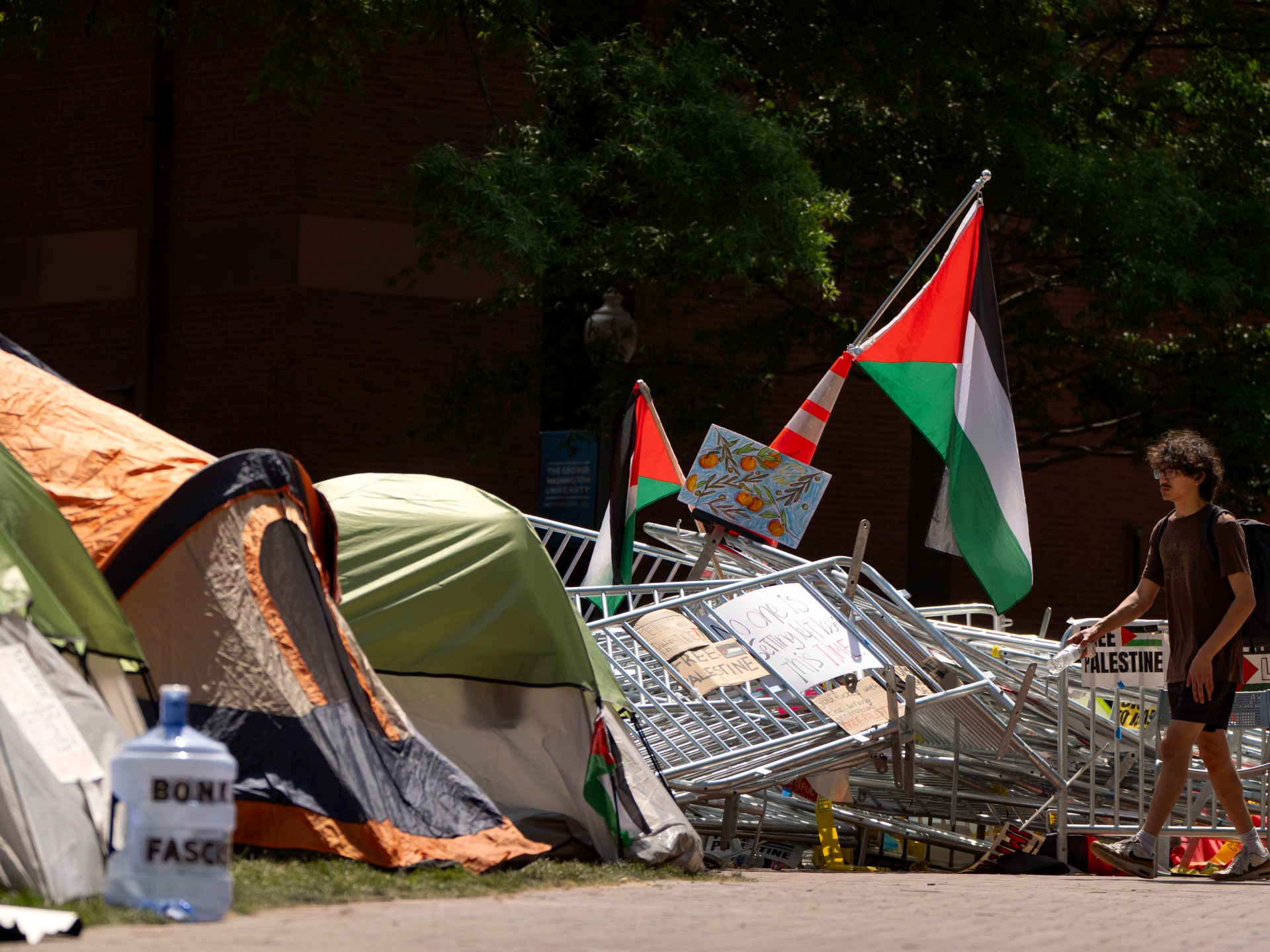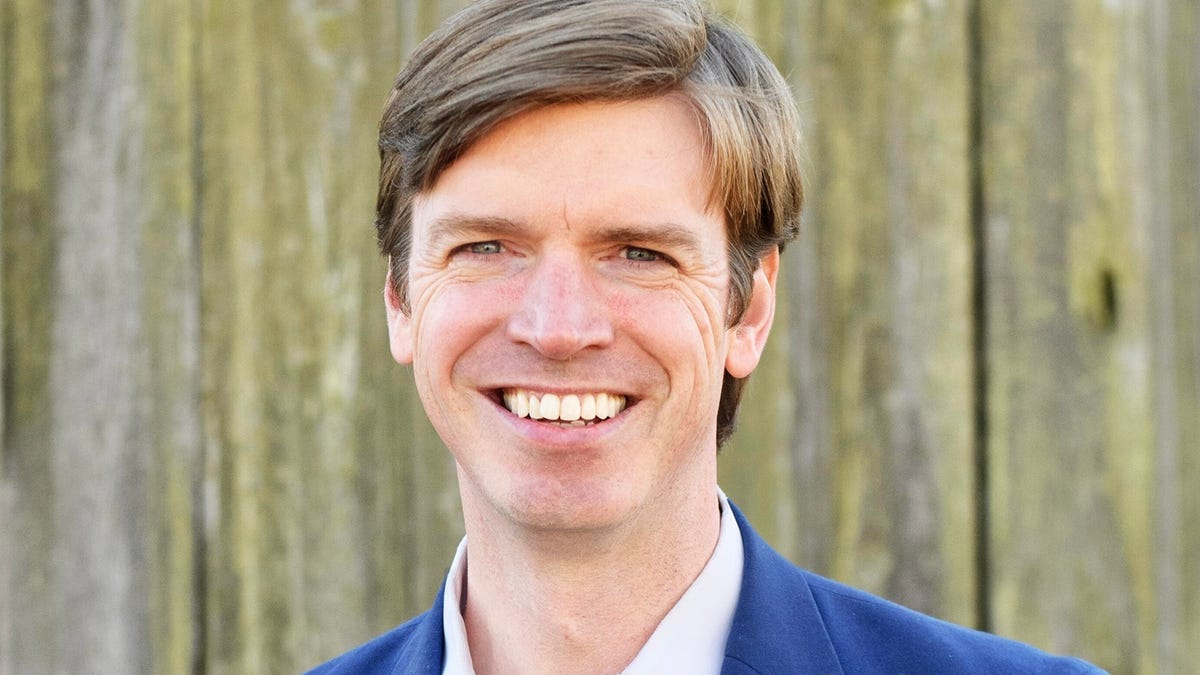World
State of democracy: How do European countries compare?

Europe keeps its status as the world’s highest-performing region in democratic performance, but declines have been seen in many countries, according to the Global State of Democracy 2023 Report.
The fundamentals of democracy are weakening across the world, with half of countries suffering democratic declines such as rule of law and freedoms of expression, according to a new report by the International Institute for Democracy and Electoral Assistance (International IDEA), an intergovernmental organization headquartered in Stockholm.
Europe keeps its status as the world’s highest-performing region, but declines have been seen in many countries including the established democracies such as the United Kingdom, Austria, and the Netherlands.
So how do European countries compare in terms of democratic performance, and which counties have the highest level of democratic values in Europe?
Global deterioration continued
The International IDEA’s annual report examines the health of democracy around the globe. This year’s report, which is entitled “The Global State of Democracy 2023 Report – The New Checks and Balances,” found that across every region of the world, democracy has continued to contract, with a decline in at least one key indicator of democratic performance in the past five years, based on 17 metrics ranging from civil liberties to judicial independence in almost half of the 173 countries surveyed.
This decline has been intensified by the erosion of formal ‘checks and balances’ – elections, parliaments, and courts – that have struggled to uphold the law and hold politicians to account according to the report. This deterioration comes as the cost-of-living crisis, climate change and Russia’s war against Ukraine pose huge challenges for elected leaders.
“Many countries are struggling now even with basic aspects of democracy,” said International IDEA Secretary-General Kevin Casas-Zamora.
“But while many of our formal institutions like legislatures are weakening, there is hope that these more informal checks and balances, from journalists to election organizers and anti-corruption commissioners, can successfully battle authoritarian and populist trends.”
Rather than one overall classification, this year’s report ranks the countries in four major categories of democratic performance: Rule of Law, Rights, Representation and Participation. Each category is scaled to range from 0 to 1, with 1 being the most democratic.
Nordic countries at the top
Nordic countries show the best democratic performance. Looking at the scores, Denmark is at the top of three categories out of four across the world. Norway and Finland are also ranked in the top 10 in all categories, and Sweden is in three categories.
In 2022, Germany also demonstrated outstanding democratic performance, ranking in the top 10 in all four categories.
As consolidated democracies in Europe, France and the UK succeeded at reaching the top 20 in only two categories. In the Rule of Law, the UK ranked 17th and France is 20th. In the category of Rights, France ranked 27th and the UK is 34th.
Hungary, Poland and Romania show the worst performance in the EU
In 2022, looking at both the scores and global ranking, some of the Eastern EU members did not show a great democratic performance. They are Hungary, Poland, and Romania. They were not in the top 50 in rule of law ranking.
Four countries drifted away from the rest of Europe
The report listed Azerbaijan, Belarus, Russia, and Turkey as non-democratic countries. According to the scores, Turkey has done slightly better than the other three countries. However, none of them are ranked in the top 100 in any of the four categories. “The clearly non-democratic group of Azerbaijan, Belarus, Russia and Türkiye (Turkey) has drifted away from the rest of Europe, performing well below the European average across most indicators of democracy,” the report concluded.
Change in the last 5 years: Declines and rises
Although European countries clearly lead all four categories, looking at changes between 2017 and 2022, there have been significant declines in specific indicators of democratic performance in many of established the democracies in Europe. The report underlines the deterioration in the scores of long-standing and strong democracies, including Austria, Luxembourg, the Netherlands, Portugal and the UK.
Declines have affected several indicators, the most common being the Rule of Law (especially Predictable Enforcement) and Freedom of the Press. These countries remain high-performing in most factors, but “the declines highlight the importance of constant vigilance in future-proofing democracy,” the report said.
Changes in the scores between 2017 and 2022 indicate the declines and rises. While in the chart above all the countries, the International IDEA refers to only five-year changes with a statistical significance level of 0.05.
Taking this base, several European countries showed a significant fall in the Rule of Law. The scores of seven EU countries in this category decreased more than 0.05 points. This decline was especially significant in Portugal, Austria, the Netherlands, and Hungary. After Belarus, the UK showed the largest decline.
Austria and the UK were also among the countries having an important decrease in the Rights category. France had the third highest decline in this category.
Germany had very high scores in all categories, but its score in the Representation fell significantly.
Despite the declines in Hungary and Poland, Central Europe was the epicenter of democratic growth, becoming the second-highest performing subregion regarding the Rule of Law according to the report. Moldova, Latvia, Armenia, Romania, and Azerbaijan increased their scores more than 0.05 points in the Rule of Law.
What do these categories measure?
According to the report, the four main categories examine different dimensions of democratic performance.
Rights is an aggregate measure of a fair legal system, respect for civil liberties, the extent to which the material and social supports of democracy are available, and the degree to which political and social equality between social groups and genders is realized.
Rule of Law is a new aggregate measure introduced this year (with comparisons from 2021). It includes assessments of the independence of the judiciary from government influence, the extent to which the public administrators use their offices for personal gain, how predictable enforcement of the law is, and the degree to which people are free from political violence.
Representation is an aggregate measure of the credibility of electoral processes (including elections that are free from irregularities, political parties that are free to operate, the inclusiveness of the right to vote and the extent to which national offices are filled by elected individuals), the effectiveness of legislatures and the quality of local democratic representation.
Participation is an aggregate measure of how involved citizens are in democratic expression during and between elections. It includes assessments of the context within which civil society operates, the strength of interest groups, the degree to which people are engaged with associations and trade unions, and voter turnout in national elections.

World
Blinken says US cannot support Rafah assault without humanitarian plan

World
The unexpected announcement of a prime minister divides Haiti's newly created transitional council

A surprise announcement that revealed Haiti’s new prime minister is threatening to fracture a recently installed transitional council tasked with choosing new leaders for the gang-riddled Caribbean country.
Four of seven council members with voting powers said Tuesday that they had chosen Fritz Bélizaire as prime minister, taking many Haitians aback with their declaration and unexpected political alliance.
HAITI COUNCIL APPOINTS NEW PRIME MINISTER AS COUNTRY CONTINUES TO FACE DEADLY GANG VIOLENCE
The council members who oppose Bélizaire, who served as Haiti’s sports minister during the second presidency of René Préval from 2006 to 2011, are now weighing options including fighting the decision or resigning from the council.
A person with direct knowledge of the situation who did not want to be identified because negotiations are ongoing said the council’s political accord had been violated by the unexpected move and that some council members are considering other choices as potential prime minister.
Edgard Leblanc Fils, left, and Smith Augustin prepare to pose for a group photo with the transitional council after it named Fils as its president in Port-au-Prince, Haiti, Tuesday, April 30, 2024. The transitional council will act as the country’s presidency until it can arrange presidential elections sometime before it disbands, which must be by February 2026. (AP Photo/Odelyn Joseph)
The council on Tuesday was scheduled to hold an election and choose its president. But two hours and a profuse apology later, one council member said that not only a council president had been chosen, but a prime minister as well. Murmurs rippled through the room.
The Montana Accord, a civil society group represented by a council member with voting powers, denounced in a statement late Tuesday what it called a “complot” hatched by four council members against the Haitian people “in the middle of the night.”
“The political and economic mafia forces have decided to take control of the presidential council and the government so that they can continue to control the state,” the Montana Accord said.
Haitian politics have long been characterized by secretive dealings, but many worry the country cannot afford further political instability as gangs lay siege to the capital of Port-au-Prince and beyond.
“People change parties (like) they’re changing their shirts,” said François Pierre-Louis, a professor of political science at Queens College in New York and former Haitian politician.
He spoke during an online webinar on Tuesday evening.
Like others, he said he believed that Jean-Charles Moïse, a powerful politician who was a former senator and presidential candidate, was behind Bélizaire’s nomination.
“Interestingly, Moïse, of all the politicians there, is the one calling the shots,” Pierre-Louis said.
Moïse, however, does not sit on the council. His party, Pitit Desalin, is represented by Emmanuel Vertilaire, who is among the four council members who support Bélizaire.
The others are Louis Gérald Gilles, Smith Augustin and Edgard Leblanc Fils, the council’s new president.
They could not be immediately reached for comment.
A document shared with The Associated Press and signed by the four council members who chose the new prime minister state they have agreed to make decisions by consensus. The document is titled, “Constitution of an Indissoluble Majority Bloc within the Presidential Council.”
The move prompted the Fanmi Lavalas party to issue a statement Wednesday calling it a “masquerade” and “conspiracy” to guarantee that PHTK “thugs and their allies retain power…and continue the tradition of corruption.”
“The Lavalas Family strongly rejects the betrayal scandal that occurred on April 30,” the party said.
Fils represents the January 30 political group, which is made up of parties including PHTK, whose members include former President Michel Martelly and slain President Jovenel Moïse. Meanwhile, Augustin represents the EDE/RED political party, founded by former Prime Minister Claude Joseph, and Gilles represents the Dec. 21 agreement, which is associated with former Prime Minister Ariel Henry, who recently resigned.
Henry was on an official visit to Kenya to push for the U.N.-backed deployment of a police force from the East African country when gangs in Haiti launched coordinated attacks starting Feb. 29.
They have burned police stations, opened fire on the main international airport that remains closed since early March and stormed Haiti’s two biggest prisons, releasing more than 4,000 inmates. The violence continues unabated in certain part of Port-au-Prince, including the area around the National Palace.
Haitians are demanding that security be a top priority for the council, which is tasked with selecting a new prime minister and Cabinet, as well as prepare for eventual general elections.
But some Haitians are wary of the council and the decisions it’s taking.
Jean Selcé, a 57-year-old electrician, noted that most of the council members are longtime politicians: “Their past is not really positive.”
“I hope their mentality can change, but I don’t believe it will,” he said. “They don’t really love the country. Who’s dying right now? It’s Haitians like me.”
Robert Fatton, a Haitian politics expert at the University of Virginia, noted that some of the parties represented on the council are responsible for the current chaos in Haiti.
“It’s a contradiction,” he said. “Every time we seem to be in a crisis, we reappoint the same people and hope that they change their ways, but they do not.”
Raising the same criticism is Michael Deibert, author of “Notes From the Last Testament: The Struggle for Haiti,” and “Haiti Will Not Perish: A Recent History.”
He noted in a recent essay that the council is “dominated by the same political currents who have spent the last 25 years driving Haiti over a cliff, taking advantage of impoverished young men in the slums to be used as political bludgeons before – bloated on the proceeds from kidnapping, extortion, drug trafficking and other criminal enterprises – these groups outgrew the necessity of their patrons.”
More than 2,500 people have been killed or injured across Haiti from January to March, according to the U.N.
In addition, more than 90,000 people have fled Port-au-Prince in just one month given the relentless gang violence.
World
Arizona Senate repeals near-total 1864 abortion ban in divisive vote

The repeal of abortion ban was passed 16 to 14 and is expected to be signed into law by Governor Katie Hobbs.
The Arizona Senate has voted to repeal the state’s 1864 ban on abortion, which would otherwise have taken effect within weeks.
The repeal was passed by the Senate in a 16-14 vote on Wednesday and is expected to be signed swiftly by Governor Katie Hobbs, a Democrat. Two Republican senators crossed party lines to vote in favour of repealing the ban.
The Arizona House last week passed the measure after a handful of Republicans broke party ranks and voted with Democrats to send it to the Senate.
“We’re here to repeal a bad law,” Senator Eva Burch, a Democrat, said from the floor. “I don’t want us honouring laws about women, written during a time when women were forbidden from voting.”
Republican Senator Wendy Rogers said in casting her vote to maintain the 1864 ban that repealing the law went against the conservative values of Arizona.
“Life starts at conception. They got it right in 1864. We need to continue to get it right in 2024,” Rogers said.
The fight over the Civil War-era abortion ban in Arizona, a state sharply split between Democrats and Republicans, is the latest flashpoint on women’s reproductive rights in the United States. In 2022, the country’s Supreme Court ended the constitutional right to abortion, leaving it up to states to decide the issue. Conservative-led states quickly invoked strict bans on the procedure within their borders.
Democrats across the US, confident that public opinion is on their side in supporting abortion rights, have sought to elevate the issue ahead of November’s presidential election. Arizona is a key battleground state.
Heather Williams, president of the Democratic Legislative Campaign Committee that works to elect Democrats to state legislatures, said her party would capitalise on the “extreme nature of MAGA Arizona Republicans” who voted to maintain the 1864 law as Democrats try to flip the state’s House and Senate in November’s elections.
Rogers, the Republican state senator, acknowledged the political risks.
“Some colleagues would say it’s politically pragmatic for us to find middle ground,” she said. “We might lose the legislature, we might lose the presidential election. But it’s more important to do what’s right.”
Near-total ban on abortions
The 1864 law was revived by a state Supreme Court ruling on April 9, and unless the legislature intervened, it would have taken effect within 60 days of that ruling, according to state Attorney General Kris Mayes, a Democrat.
If the repeal bill is signed, a 2022 statute banning the procedure after 15 weeks of pregnancy would become Arizona’s prevailing abortion law. Still, there would probably be a period when nearly all abortions would be outlawed because the repeal would not take effect until 90 days after the end of the legislative session, which is expected to be in June or July.
Planned Parenthood Arizona, a sexual health organisation in the state, announced it filed a motion on Wednesday afternoon asking the state Supreme Court to prevent a pause in abortion services until the repeal takes effect.
The near-total ban on abortions predates Arizona becoming a state.
Under the 1864 law, “every person” who participates in conducting an abortion can be held criminally liable and face a minimum sentence of two years in prison.
There are no exceptions for cases of rape or incest, although there is an exception when the pregnancy puts a woman’s life at risk.
-

 Education1 week ago
Education1 week agoVideo: Dozens of Yale Students Arrested as Campus Protests Spread
-

 News1 week ago
News1 week agoLarry Webb’s deathbed confession solves 2000 cold case murder of Susan and Natasha Carter, 10, whose remains were found hours after he died
-

 World7 days ago
World7 days agoHaiti Prime Minister Ariel Henry resigns, transitional council takes power
-

 News7 days ago
News7 days agoFirst cargo ship passes through new channel since Baltimore bridge collapse
-

 World1 week ago
World1 week agoUS secretly sent long-range ATACMS weapons to Ukraine
-

 World1 week ago
World1 week agoTurkey’s Erdogan meets Iraq PM for talks on water, security and trade
-

 World1 week ago
World1 week agoSpanish PM Pedro Sanchez suspends public duties to 'reflect'
-

 News1 week ago
News1 week agoAmerican Airlines passenger alleges discrimination over use of first-class restroom

















